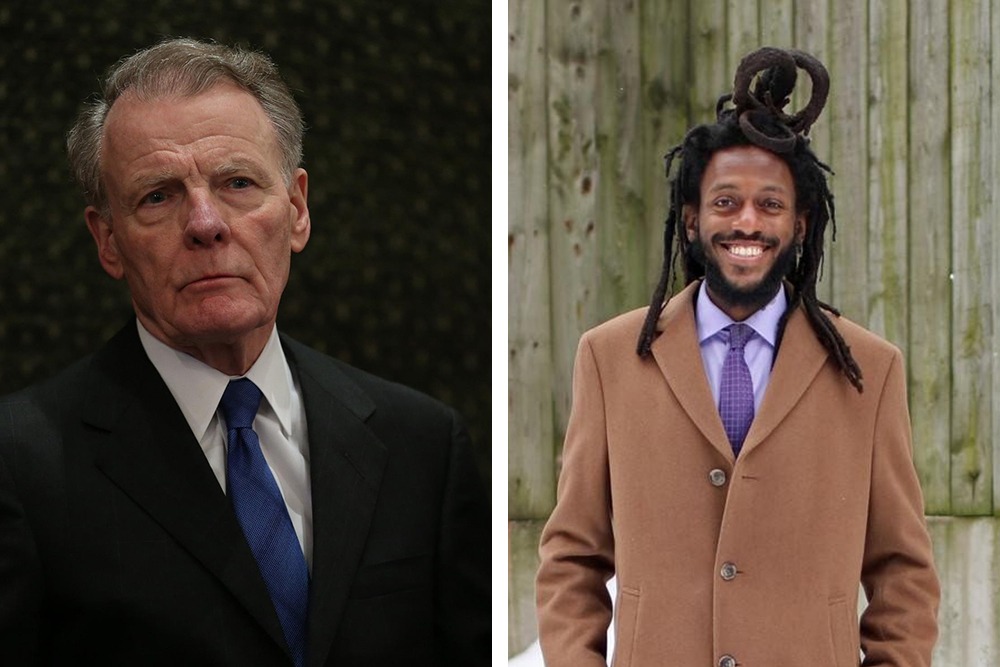Michael Madigan’s retirement is off to a rough start. His handpicked replacement—26-year-old Edward Guerra Kodatt, the infrastructure manager of Madigan protege Ald. Marty Quinn—stepped down after less than 72 hours due to “alleged questionable conduct.” It’s another blow against Illinois’s practice of appointing legislative replacements rather than holding special elections, which give voters and the press time to vet candidates.
There are plenty of other reasons to dislike Illinois’s system of replacing legislators. It encourages senators and representatives to resign in midterm, because it guarantees their seats will be filled by a member of the same party. It ignores the voices of voters by granting the power of appointment to ward and township committeepeople, or county chairmen. But it has made the Illinois General Assembly more racially diverse.
When state Sen. Heather Steans resigned in January, leaving the choice of her replacement to Far North Side committeepeople, Indivisible Illinois 9th District objected. The grassroots organization asked members of the appointment committee to “recognize that party appointments keep BIPOC and independent voices out of politics, an unstated but universal goal of machine politics.”
And they recognized it. Steans’s seat was filled by Mike Simmons, a gay, African-American son of an immigrant who grew up in public housing. Simmons beat out state Rep. Kelly Cassidy, Steans’s personal choice to replace her. Likewise, Springfield Ald. Doris Turner, an African-American woman, replaced downstate Sen. Andy Manar, who resigned to become a senior adviser to Gov. J.B. Pritzker. In fact, appointments make it easier for BIPOC candidates to achieve office than democratic elections. This year, there have been four appointments to the Illinois legislature. In three of those cases, a candidate of color was chosen to replace a white legislator.
Simmons is a case in point. He would have had a tough time defeating Cassidy in a special election. Cassidy is a popular officeholder with a campaign war chest. She runs the Democratic Party in the 49th Ward, which produces a quarter of the district’s vote. As Simmons told Chicago magazine, special elections “would replicate the status quo, because you still have a short period of time to mobilize and put a campaign together and raise the money to put out a message. That would benefit people who are already insiders.”
In the Steans and Madigan vacancies, the committees listened to calls to appoint minority legislators. Indivisible Illinois thought a BIPOC candidate deserved a shot at representing the state’s most diverse Senate district. After Madigan resigned, the Illinois Legislative Latino Caucus issued this statement: “[W]hoever goes before the appointment committee to be considered for the vacancy should recognize that they are seeking to represent the House district with the 3rd largest Latinx population in the State of Illinois out of the 118 districts.” It’s not yet known who will replace Madigan’s replacement, but the committeepeople of the 14th and 23rd Wards got behind different Latinx candidates, the Tribune reports. [Update: According to Rich Miller at Capitol Fax, Madigan is supporting Angelica Guerrero Cuellar, the preferred candidate of 23rd Ward Ald. Silvana Tabares.]
The expense of a special election is also why (in theory) we don’t use them to replace legislators. According to Charlie Wheeler, former director of the Public Affairs Reporting program at the University of Illinois-Springfield, Illinois adopted its system of allowing insiders to appoint legislators as a cost-saving measure.
“[I]f you had to have a special election in Southern Illinois, you could have maybe eight counties within a district,” Wheeler told the Pantagraph of Bloomington. “And if you had a special election, those counties’ election machinery, the county clerk and everything, would have to get all cranked up. And so it would be quite an effort, quite a hassle. And chances are, the turnout would not be that great. And so they decided to do appointment.”
You can believe that or not. Twenty-five other states believe special elections are worth the expense. And the Illinois Way reflects the Chicago Way of insiders appointing insiders. If it’s less expensive for counties, though, it’s also less expensive for candidates. Our last two governors have been a multi-millionaire and a billionaire, so outsiders and underdogs have even less of a chance in a pure democracy.
Hate on them all you want, but appointments have made the Illinois legislature a younger, more diverse body. Committeepeople are also elected officials. With the right amount of pressure, even Chicago politicians sometimes do the right thing.




Comments are closed.